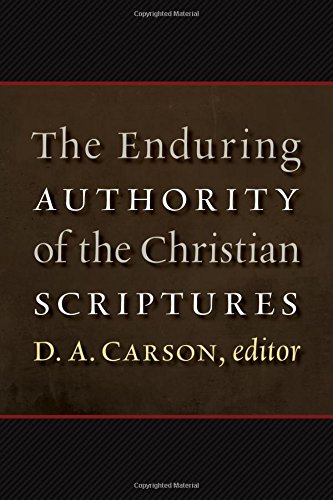A Brief Book Summary from Books At a Glance
Editor’s Note: Today we continue our series of “bonus” summaries covering all thirty-six chapters of the monumental volume, The Enduring Authority of the Christian Scriptures (D.A. Carson, ed.).
Chapter 18: “Myth, History, and the Bible”
by Bruce Waltke
(Summarized by Andrew Walker)
Bruce Waltke offers a compelling chapter detailing the higher critical accusations that several OT events, particularly the Flood and Exodus, are “mythical” in nature, and thus not historically reliable. In particular, the reader is treated to a historical survey of how “myth” has been defined by scholars within different disciplines.
In common usage, “myth” connotes grandiose narratives grounded in pantheism and magic. But myth is also a genre supremely accused of being imaginative and unhistorical. Waltke, however, demonstrates that OT narratives should be better labeled historio-poesis, not mytho-poesis. By this, Waltke argues that Hebrew narratives demonstrate similarities with mythic literature expected of the time period and in conjunction with the surrounding cultures’ use of myth; but the biblical episodes are grounded in historical events aided by a supernatural inspiration of biblical authors. This aligns with B.B. Warfield’s concursive theory of inspiration: fully human and fully divine. Waltke argues that theologians should affirm both the historical facts of the Old Testament along with divinely inspired imagination.
This is why, Waltke argues, there are similarities between Genesis 1-11 and Ancient Near Eastern texts. In his view, for example, multiple perspectives exist around one global event such as the Flood, with the Bible’s story being the “purest account.” In Waltke’s view, God. . .
[To continue reading this summary, please see below....]The remainder of this article is premium content. Become a member to continue reading.
Already have an account? Sign In
